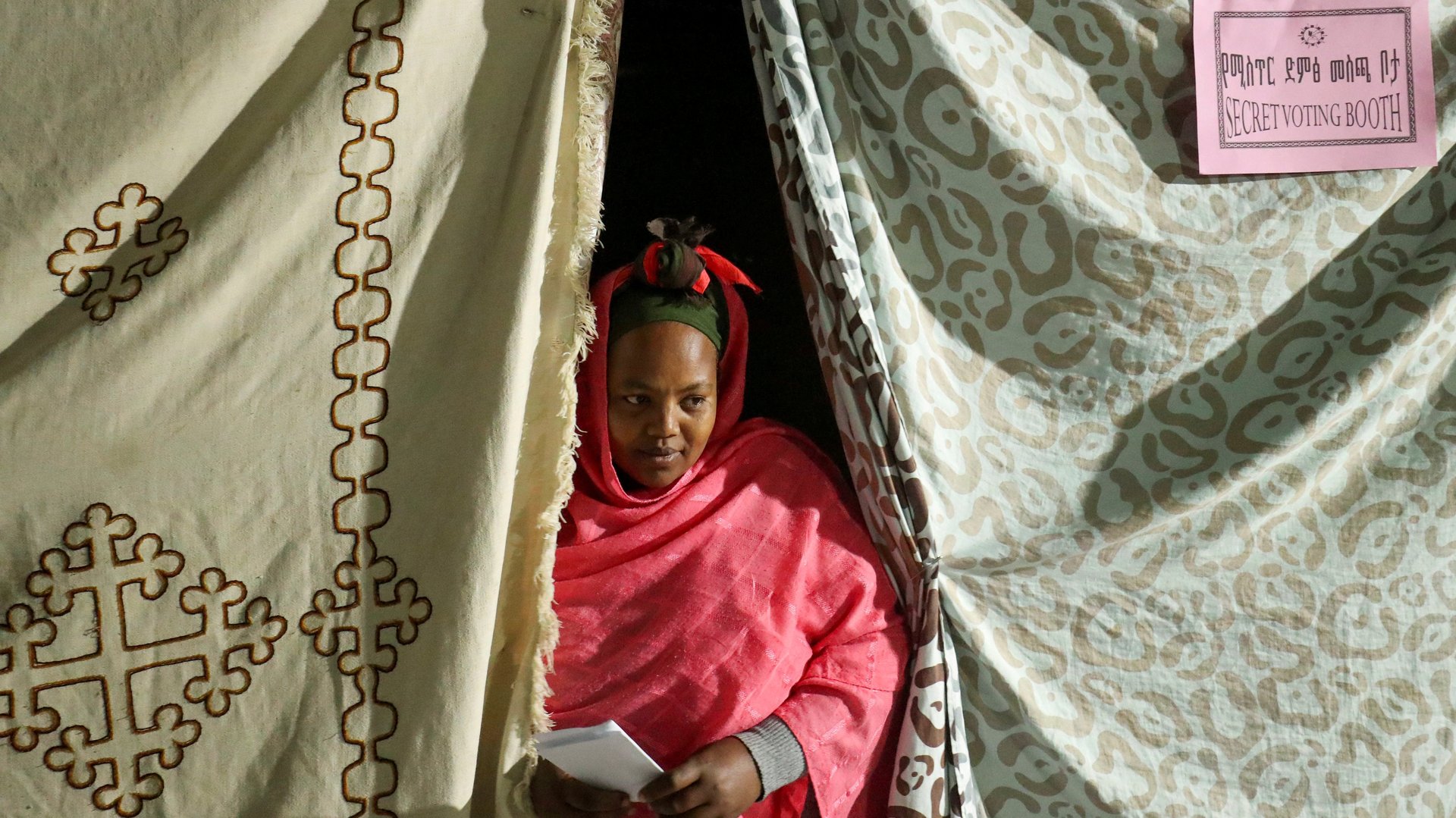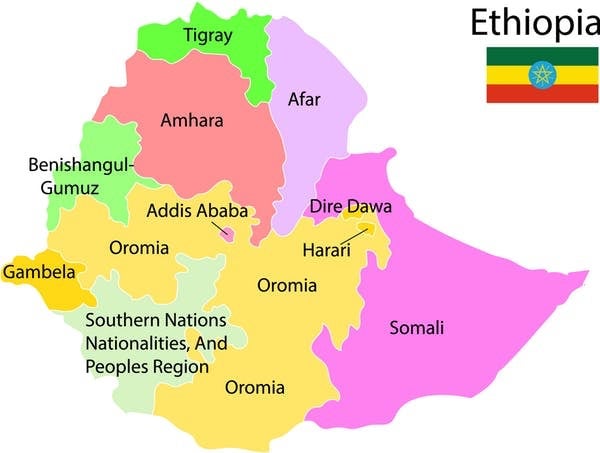Ethiopia’s Sidama people have voted for their own state, a turning point for an uncertain federalism
Nov. 20, 2019 might go down in history as one of the turning points for federalism in Ethiopia. It was the day on which a clause of the Ethiopian constitution that gives ethnic communities the right to establish their own state was put into practice.


Nov. 20, 2019 might go down in history as one of the turning points for federalism in Ethiopia. It was the day on which a clause of the Ethiopian constitution that gives ethnic communities the right to establish their own state was put into practice.
Finally, after years of campaigning, the Sidama were allowed to have their day in a referendum. They’ve been demanding their own state on the grounds that at 4% of Ethiopia’s total population, they represent a bigger group than some other ethnic communities that have their own states.
According to the results announced by the National Electoral Board, 98.5% voted for the creation of the Sidama state.
This represents the introduction of one more ethnically defined state, further strengthening the ethnic basis of Ethiopia’s federal system. It could be seen to be reinforcing the federal design that attaches importance to ethnicity as a primary political identity. This explains why other movements, such as those representing the Oromo, the largest ethnic group in the country, strongly supported the Sidama’s campaign. They see this vote as strengthening sub-national citizenship.
On the other hand, the Sidama vote could be a blow to those who have always considered the communities that make up the State of the Southern Nations, Nationalities and Peoples, from which the Sidama have chosen to break away, as one of the strongholds of the idea of Ethiopian citizenship. The state is home to more than 56 ethnic groups.

What’s next?
The outcome of the Sidama vote paves the way for the inclusion of a 10th state in the Ethiopian federation.
But what happens next is unclear.
For example, will it lead to the Sidama state being added to Article 47 of the constitution, which lists the states that make up the Ethiopian federation? It’s not clear how the federal government intends to go about this.
Would this be accomplished by a simple act of parliament? Or will it require an amendment to the country’s constitution? As I’ve argued before, it would be difficult to consider the inclusion of a new state to Article 47 of the constitution as anything less than a constitutional amendment. The difficulty with a constitutional amendment is that it requires the blessing of the two houses of the federal parliament and the support of the state parliaments.
This might seem impossible, except for the fact that Ethiopia is dominated by one party which controls the federal government and all state governments. It’s therefore a safe bet that the ruling party will be able to get the state governments behind a constitutional amendment aimed at the recognition of the new state.
This is true even though the overreaching hand of the ruling party is not as strong as it used to be.
There’s another possibility: that the federal government bypasses a constitutional amendment and simply acts as if the business of creating a new state is completed. But that wouldn’t look good for a government and a prime minister who professes to be overseeing a new era of constitutionalism and rule of law.
The floodgates effect
The Sidama vote could open the floodgates for other communities wanting the same. Other ethnic communities that have already demanded their own states include the Welayta ethnic group, the second largest in the Southern state.
But there are concerns. In a country where there are more than 80 ethnic groups, the territorial solution isn’t feasible. Not every ethnic group can have its own state. Clearly creating micro-subnational units that aren’t economically viable isn’t sustainable.
Providing a territorial solution in the form of a new state might also create a perverted incentive, given that territorial entities are the sites of resource – and patronage. Political elites might demand the creation of new states simply to benefit from the dividends of controlling a new one.
But these concerns need to be balanced against the legitimate demands of other groups which should not simply be dismissed.
Ethiopia will not be the first federation to see the breakup of existing states and the creation of new ones. Nigeria started as a federation of three states. It’s now composed of 36.
In India 15 new states were carved out from 14 states between 1956 and 2014.
Both countries continue to entertain demands for the creation of new states. Yet neither of them is facing the imminent danger of disintegration.
It’s also important to remember that Ethiopia started the road to federalism with 14 states before the current constitution reduced it to nine states and two self governing cities. So, having more (and smaller) states isn’t necessarily a bad idea. It might even have the effect of strengthening the federal government, an important asset in the context of a divided society.
Importantly, what’s needed is a federal government that doesn’t believe that the fate of the country is at stake whenever it’s faced with a demand for new state. The government must be flexible enough to accommodate reasonable requests for the creation of new states while at the same time nudging the demands for the creation of new states to be an outcome of negotiations that increasingly look beyond ethnic homogeneity and also consider administrative convenience and economic viability.
As the case of Sidama has amply demonstrated—more than two dozen people died this year as people campaigned for a new state—simply ignoring the concerns of those who make similar calls might cost the country dearly.
The government’s decision to reject the unilateral declaration of the creation of new state – and forcing the actors to follow the constitutional path – was appropriate. But what happens next will have a profound and long-term effect on Ethiopia’s troubled federal system.
Yonatan Fessha, Marie-Curie Fellow, EURAC Research and Associate Professor, Public Law and Jurisprudence, University of the Western Cape
This article is republished from The Conversation under a Creative Commons license. Read the original article.
Sign up to the Quartz Africa Weekly Brief here for news and analysis on African business, tech and innovation in your inbox